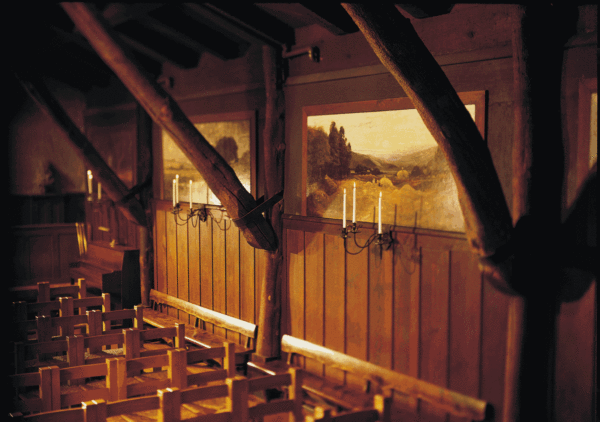Greetings to all of you in this warming month of May. It seems that April’s showers have subsided – no more pineapple express storms! — and our Bay Area climate is starting to shift into its dryer, summer patterns of heat and fog. These shifts in seasons are so beautifully illustrated in the interior of our church, in the four landscape paintings created by William Keith in the 1890’s, which show the movement of the California seasons from wet and dark winter into green spring, and then the golden blaze of summer and fall. Where I live in Berkeley, the grassy hills outside my window have already dried from emerald green to a sere amber—quite picturesque, but not without a certain anxiety about wildfires and another fire season already on the horizon. We continue to hold those we know in Southern California who were affected by the catastrophic January fires in our sincerest prayers; it is a long road to rebuilding and recovery.
Mother’s Day is always a chance to reflect on our connection with the generative powers of our planet that gives us all life and nourishment. Many cultures and religious traditions conceive of the earth as a feminine, spiritual force; in Hinduism, the earth is referred to as the Prithivi Mata (Mother Earth), and for many indigenous peoples of the Andes, Pachamama (Earth Mother) remains the central spiritual, sustaining force for life on the planet, an idea more recently incorporated into the “rights of nature” in the constitution of Ecuador. Like all our mothers, the Earth has rights and obligations we should respect if we are to “honor our father and our mother,” as one of the biblical Ten Commandments instructs us to do.
Our special William Keith landscape paintings in the sanctuary are windows onto the shifting, layered moods of Mother Earth (as they also show, in the Swedenborgian sense, “correspondences” of our inner states of being as we regenerate and spiritually grow). The paintings depict a generous parent, providing the rains for green grass, the food for cultivation and sustenance (next time you are sitting in church, note the stacked hay, the furrowed fields: this is not a wilderness, but a landscape being used by humans). May we all reciprocate our shared planetary parent just a fraction of the awesome, amazing love she has given us over our lives—an abundance of wonder in waves, mountains, and stars, and good food that keeps us healthy.
I wish all the mothers in our congregation, of all sorts – all those who have loved and nurtured family either born and/or chosen—a very restful and most special weekend.
See you Sunday,
Rev. Dr. Devin Zuber, MA, M.Phil

